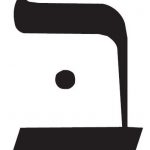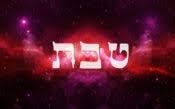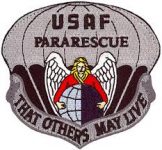Deuteros, dos, duo, dwi, second, shenayim, sheniy, twa, and two. These are the words that describe what comes after the number one. The letter B is the second letter of the alphabet in English, Greek, and Hebrew. In Greek and Hebrew though, B also represents the number two. In English, we use the character 2 to represent two.
 Pictorially, the letter B represents a house (Beth, which is also the character’s name) in Hebrew. The place where YaHVaH resides is called Beth YaHVaH or Beth El (House of YaHVaH or House of El). Consider the words of the New Testament in Matthew 6:24a, “No one is able to serve two lords/masters;” In Hebraic culture, a lord/master is the ruler of a house.
Pictorially, the letter B represents a house (Beth, which is also the character’s name) in Hebrew. The place where YaHVaH resides is called Beth YaHVaH or Beth El (House of YaHVaH or House of El). Consider the words of the New Testament in Matthew 6:24a, “No one is able to serve two lords/masters;” In Hebraic culture, a lord/master is the ruler of a house.
Now, read number 2 of the Ten Words. “Cast metal gods you shall not make to you” Exodus 34:17. The Hebrew word Massekhah is defined as a casting of metal, but also as a covering (Ges. p. 489). The KJV translates massekhah as molten image. The implication is clearly the taking of metal, melting it, and casting it as a covering to form an image. In Exodus 32, Yisrael did this in the form of a golden calf and they were punished. Thousands died.
The Second Commandment of the 14, reads, “You shall not make to you a carved image . . .” Exodus 20:4. Carved image here is the Hebrew word Pesel. Pesel comes from the root word pasal, meaning to carve from wood. Yisrael must have assumed that because YaHVaH spoke of not making a carved (wooden) image, then this commandment did not apply to cast metal images. How wrong they were later in Exodus 32, which also explains why YaHVaH specifies cast metal later in Exodus 34, Word Number 2.
In Commandment 2, YaHVaH says carved (wooden) image, and in Word 2, cast metal. Yet, both refer to the making of an image to use as a false god. Exodus 20:4 continues with, “. . . and all appearances of which is in the heavens above and which is in the earth below and which is in the waters below to the earth.” Appearances here is the Hebrew word T’munah. This word comes from the root word Miyn, meaning to bear an appearance or to pretend (Ges. p. 470). Looking at the grammar structure, t’munah could also mean “you will have pretended to be.” In other words, something which is a false pretender of the real thing, yet appears real.
YaHVaH does not want us to make any thing to be a god (not of carved wood, cast metal, or other form) because they are only pretend, hollow representations of the real things in creation.
In Deuteronomy 27:15, a curse was pronounced regarding this commandment. It reads, “Accursed is the man who makes Pesel (carved image) and Massekhah (cast metal), an abomination to YaHVaH, a work of the hands of a craftsman . . .” Both words from Exodus 20 and Exodus 34 are used, tying them together as one.
“19 Because that which is known of the Elohiym is manifest among them, for the Elohiym to them manifested, 20 for the invisible things of Him from Creation of the cosmos, by the things made being understood are perceived, both His eternal power and deity; to the I AM they are without excuse. 21 Because having known the Elohiym, not to Elohiym they glorified or were thankful; but became vain in their reasonings, and they darkened the unintelligence of their heart. 22 Professing to be wise, they became fools, 23 and changed the glory of the incorruptible Elohiym into a Likeness image of corruptible man and birds and quadrupeds and creeping things. 24 Wherefore, the Elohiym also gave them up into the desires of their hearts to uncleanness, the dishonoring of their bodies in themselves. 25 Who changed the truth of the Elohiym into the false religion, and they worshipped and they served the creation above (more than) the Creator, who is blessed to the eternity. Amen” Romans 1:19-25.
In the above Scripture, the word Likeness is a Greek word, Omoiomati, which means likeness, resemblance, or similitude (Greek Lexicon p. 293), and the word Image is a Greek word, Eikonos, which means material image, likeness, or effigy (Greek Lexicon p. 119). These words then make a clear correlation to the words in Exodus 20, Exodus 34, Deuteronomy 5, and Deuteronomy 27.
Also in the New Testament, Yeshua states what is the Second Commandment, and it is not found in Exodus at all. “But the second [commandment is] like it, You shall love your neighbor as yourself. On these, the two commandments, all the law and the prophets hang” Matthew 22:39-40, and “And the second [commandment is] like this, You shall love your neighbor as yourself. Greater than these, another commandment there is not” Mark 12:31.
So where is Yeshua’s Second Commandment located in the Old Testament? The answer is Leviticus 19:17,18,34. Verses 17-18 read, “You shall not hate your brother in your heart. Rebuke! You shall rebuke your fellow and you shall not bear sin upon him. You shall not take revenge and you shall not bear a grudge against the sons of your people; and you shall love your neighbor as yourself, I am YaHVaH!” Clearly, in this Scripture, YaHVaH is equating brother, fellow/friend, sons of your people, and neighbor with the same understanding, love them all and do not hate.
Commandment Number Two and Word Number Two are both negative commands referring to what/who not to worship. Yeshua’s positive command is to love, but also carries the negative to not hate.
Return to Table of Contents
Or continue on to Number 3







